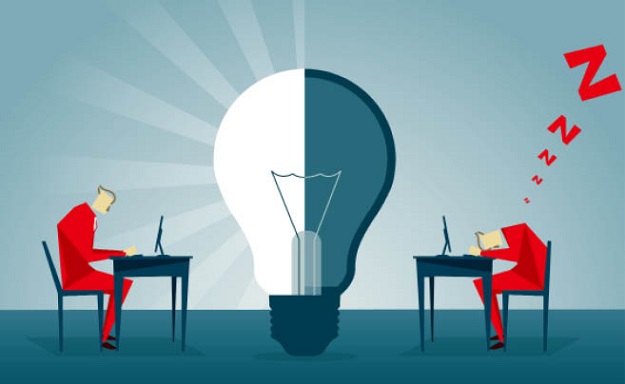Related articles
Peak performance: strategies for boosting energy, effectiveness and sustainability
While commercial success depends in part on business skills and strategy, it also relies on individual wellbeing and vitality: Maintaining the energy levels required to perform at peak, even in challenging environments, is key for productivity and an essential element for individuals wanting to live and work successfully and sustainably.
Our mental and physical state is influenced by a range of factors including nutrition, sleep and physical activity. What follows is a selection of simple strategies that I have found to be consistently effective for boosting energy, effectiveness and sustainability, providing wide-ranging benefits for individuals and businesses alike.
FLUID THINKING
The body is about two-thirds water, and the brain is even more watery than that. Studies show that even very mild dehydration can impair our vitality and cognitive abilities including concentration and critical thinking.
You’re likely familiar with the idea that ‘we should drink 2 litres or 8 glasses of water each day’. Yet, fluid needs vary from individual to individual (for example, does someone weighing 100 kg need the same as someone weighing substantially less?), as well as circumstances such as temperature and levels of activity.
The ‘right’ amount of fluid to drink is the amount that it takes to ensure we are well-hydrated, whatever our size and situation. Some people imagine that thirst is the best indicator of our need to drink. The problem is by the time someone is noticeably thirsty, they are usually dehydrated well beyond the point performance has been affected.
A better guide to the state of our hydration is the colour of our urine. My advice is to drink enough fluid to keep our urine colour pale yellow throughout the course of the day, whatever the circumstances.
SLEEP IS NOT PRODUCTIVE, BUT IS KEY FOR PRODUCTIVITY

Sleep restores our energy and prepares us physiologically and psychologically for the next day. A common prescription is to ensure we get ‘8 hours a night’. But, as with fluid requirements, sleep needs vary from person to person, and can even vary from time to time.
I encourage people to gauge whether their sleep needs are being met by looking for symptoms of ‘sleep debt’, such as regularly waking ‘artificially’ to the sound of an alarm, not feeling well-rested on waking, and the use of a phone’s snooze function.
Anyone suspecting they may be running chronically short on sleep might do well to address this. While a very consistent ‘sleep schedule’ is recommended for optimal sleep, I find in practice hardly anyone in employment can get close to such a thing, particularly if they have hopes on some sort of social life.
Plus, I’m a great believer in catching up on sleep when time, commitments and situation allow. The sleep scientists tell us we cannot catch up on sleep, but my experience with literally thousands of individuals tells me otherwise: the vast majority of people short of sleep are instantly revived by getting more shut-eye. ‘Sticking to a schedule’, robs us of the potential to recoup sleep in this way, though.
During the working week, ‘sleeping in’ is not normally an option, frantic morning schedules being what they are. So, the killer tactic is usually simply to go to bed earlier when we can. This is unlikely to work if the thought around this is ‘sleep is a waste of time’ and ‘my life is over’. The mindset needs to be more that while sleep is not productive, it is essential for productivity and performance, and at the same time is helping us to have healthier, energised and more fulfilling lives.
EASY ON THE ALCOHOL?

I’ve noticed over the last couple of decades that it’s become increasingly acceptable not to end up utterly ruined at work-related dinners and functions. At the same time, it seems very few business executives have taken the pledge. So, some of us have settled on drinking moderately on certain occasions.
This looks like a happy middle ground on the surface, but the issue is that, generally speaking, even quite small amounts of alcohol tend to disrupt sleep quality, particularly in the second half of the night. My experience is that usually a couple of glasses of wine will be all it takes for someone to feel significantly less well-rested in the morning compared to if they had not drunk at all.
While there may be pleasure to be had from drinking, often this is outweighed by the ‘pain’ endured the next day. While common medical advice is to ‘spread alcohol out’ or ‘drink little and often’, what I’ve found over the years is this jeopardises performance and sustainability. What experience tells me works way better for most people is to confine drinking mainly to the weekend, and drink as little as possible during the week.
MOVEMENT MATTERS
We are reminded endlessly about the virtues of physical exercise, but there’s no doubt that some of us can struggle to find the time to fit it in, particularly when we’re busy at work. A common issue here is imagining that we’re not really going to get benefit unless we’re exercising quite intensely for an extended period of time.
Actually, studies suggest that even walking has considerable benefits for health and wellbeing, with evidence linking consistent moderate activity with reduced risk of type 2 diabetes and cardiovascular disease, as well as delayed death. Walking, in the short term, can improve and boost mental function and creativity (many people find their best ideas come to them not while they’re thinking on a problem, but while ‘in transit’).
Some form of more intense physical activity, perhaps including something with a ‘resistance’ component can be helpful too. This does not require going to the gym, though, and it can sometimes be helpful to be mindful of Bruce Lee’s advice that “Long-term consistency trumps short-term intensity.”
A decent set of press-ups and squats, a home-based circuit such as the ‘7-minute workout’, or 3-4 rounds of sun salutations (if you’re into yoga) are all good and can usually be fitted into a morning routine with relative ease.





